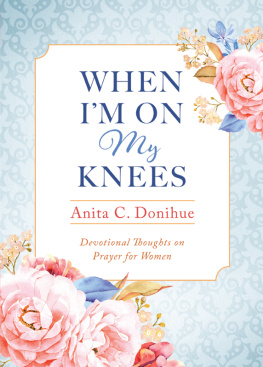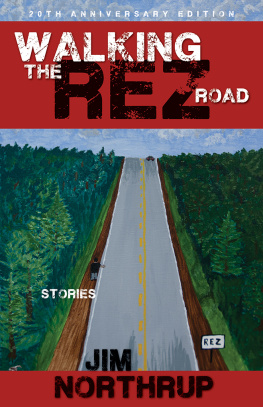PRAISE FOR
19 and 20 is a book-event that has become a key for social movements around the world. In it, Colectivo Situaciones practice militant research as an act of listening (escucha) and experimentation that translates the powerful mobilizations that took the streets to end neoliberal plundering (saqueo) into an inspiring and crucial praxis of thinking. Learning from the events instead of imposing old categories on their singularities, this book is a crucial source of inspiration on militant research and situated thinking. A singular work of pedagogy from below, this new edition comes in a timely moment where the deepening of the neoliberal expropriation of life that the pandemic has made so explicit meets with the tenth anniversary of the global uprisings of 201. Today, once again, 19 and 20 offers a crucial map for experimenting in the situated praxis of political thought.
Susana Draper, coeditor of Feminicide and Global Accumulation and author of Afterlives of Confinement and 1968 Mexico
Assemblies may become thinking machines. And experiments of resistance may give rise to alternative experiences of sociability. Colectivo Situaciones develops out of these findings, that emerged within the 2001 resurrection in Argentina, a powerful reflexive research: a truly magnificent effort to explore the potentialities of a future beyond capitalism.
Stavros Stavrides, author of Towards the City of Thresholds
This is a book born in the barricades, neighborhood assemblies, and factory occupations of Argentinas 2001 uprising against neoliberalism. Written by movement participants, its an inspiring account of the rebellion and a grassroots model of how to research and theorize a movement that forged a new way of doing politics from below. The English translation of such a classic book thats been passed around revolutionary circles for decades is a cause for celebration and hitting the streets!
Benjamin Dangl, author of The Five Hundred Year Rebellion: Indigenous Movements and the Decolonization of History in Bolivia
Twenty years ago, Argentina erupted in blockades and assemblies, occupations, demonstrations, and communal kitchens. In both its circumstances and forms, the 2001 uprising presaged the protests of 2011 and the struggles of our time. Colectivo Situaciones 19 and 20 provided both the sharpest analysis of that moment and a model of theoretical practice: nimble, dialogical, embedded in the movements with whom it thought, made in common. To rediscover it today is to do more than reconnect with the recent past; it is inevitably also to ask how it illuminates what we have lived since, and how we can continue to extend its lessons into the future.
Rodrigo Nunes, author of Neither Vertical nor Horizontal: A Theory of Political Organization
A long decade before Occupy Wall Street, Argentineans poured into the streets to reject austerity and short the circuits of neoliberal capitalism, proving that state violence was no match for popular refusal. But this is not a book about Argentina or even Latin America as a whole, a brutal laboratory where neoliberalism was imposed in blood and fire. Its about a way of thinking that is also a doing, about what the concrete experience of rebellion teaches us about how the world moves, and how to turn that movement into thought. Find yourself in this book.
Geo Maher, author of A World Without Police and Spirals of Revolt
The 2001 uprising in Argentina is a major flashpoint in a wave of popular struggles that repudiated the neoliberal capitalist order and authored new forms of non-capitalist social construction. Colectivo Situaciones gives us important analyses of the uprising and its legacies, the roots of Argentinas financial and political crisis, and changes in contemporary forms of anticapitalist mobilization and resistance. Their close attention to grassroots practices of resistance, political organizing, and world-making is emblematic of their method of militant research, which itself has been an inspiration to so many. Those interested in contemporary social movements, political theory, and the history of Argentina and the region will find much to appreciate in this wonderful new edition.
Jennifer S. Ponce de Len, author of Another Aesthetics Is Possible: Arts of Rebellion in the Fourth World War
Why, more than two decades later, does the shouting Qu se vayan todos! still resonate in our minds and hearts? How did these new forms of organizing and organizations that emerged in the early 2000s change the way we understood democracy and made us believe that everything is possible? This book is a must read for the ones who are trying to understand not only the new cycle of collective action driven by movements that started twenty years ago, but who are also looking at the long path that since thensocial movements in Argentina in particular and Latin America in generalhas been walked until today. Memory can also be a space for resistance.
Marcela Olivera, water commons organizer based in Cochabamba, Bolivia
19 and 20: Notes for a New Insurrection
Colectivo Situaciones
Translated by Nate Holdren and Sebastin Touza
Afterword translated by Anna-Maeve Holloway
Edited by Jay Blair, Malav Kanuga, and Stevphen Shukaitis
This edition 2021 Common Notions
19 y 20: Apuntes para el nuevo protagonismo social
Spanish language edition printed in Argentina in April 2002.
First edition released 2011 with Autonomedia and Minor Compositions
ISBN: 978-1-942173-48-9 (print)
ISBN: 978-1-942173-60-1 (eBook)
LCCN: 2021947331
Common Notions | Common Notions |
c/o Interference Archive | c/o Making Worlds |
314 7th Street | 210 South 45th Street |
Brooklyn, NY 11215 | Philadelphia, PA 19104 |
www.commonnotions.org
Cover design by Morgan Buck /Antumbra Design www.antumbradesign.org
Layout design and typesetting by Morgan Buck and Margaret Killjoy
For Sebastian Touza, in loving memory amid grief and outrage
ACKNOWLEDGEMENTS
THE POLITICS OF THE QUOTATIONS AND INTERVENTIONS IN THIS BOOK are not innocent: through them, we have involved friends and compaeros, for whose thought and generosity we are thankful. Against our will, all the people who write here must be absolved of any responsibility other than being authors of the lines they sign. We would like to thank very specially Mara Pa Lpez and Guillermo Korn, who devoted themselves to reading, revising, criticizing, and expanding the manuscripts of this work. To Florencia Lance for supervising, as always, every step of Ediciones De Mano en Mano. To Carlos Cucho Fernndez, who nurtures and animates, with his aesthetic thinking and graphic art all the publications of this collective and to Luca Scrimini for her longstanding collaboration and support, and to Diego Ortolani for his lucid presence. To the comrades of Colectivo Situaciones whose constant work make possible and valorize these initiatives. We also would like to note the circumstantial absence of Marcelo Matellanes who, nonetheless, is present here with his ideas.









